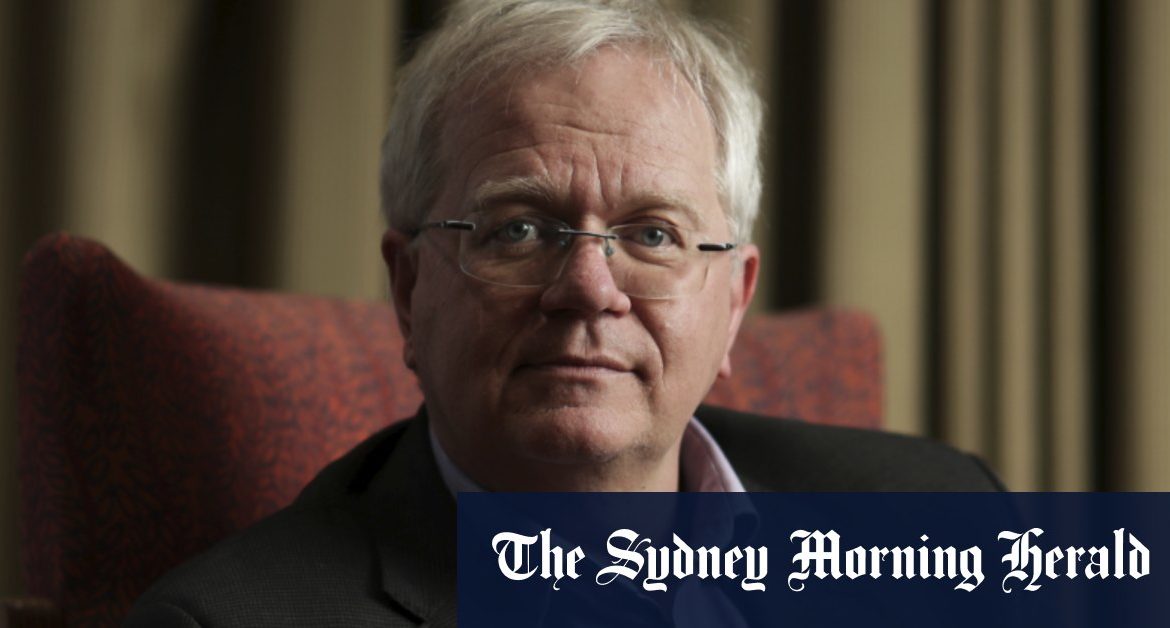“It would be really helpful if we could have a message coming from the Prime Minister welcoming students back, but with a realistic set of parameters,” Professor Schmidt said.
“A supportive message that says, ‘Yes, we are going to take our time but when you are here it is going to be safe and we’re really going to look after you’. I don’t think we’ve really had that welcoming stance out there.”
Professor Schmidt’s comment is a public admission of what many in the university sector have been willing to concede only privately.
International student education is worth $40 billion to the Australian economy and is one of its most valuable export industries. Universities collectively banked $10 billion in foreign students’ fees in 2019, accounting for 27 per cent of their total operating revenue. The fees are used to cross-subsidise research programs.
However, coronavirus travel restrictions mean some universities are reporting steep declines in applications from new international students for next semester. While students typically have until February or March to accept university offers, the early signs of low application and acceptance rates bode poorly for universities’ budgets.
RMIT University has so far recorded a 25 per cent decline in applications from new international students for semester one, according to sources with knowledge of the situation but unable to speak publicly.
A university spokeswoman said RMIT was “working closely with the Victorian government and other Victorian universities on a statewide approach that will allow international students to enter Victoria”.
Loading
Monash University also declined to disclose its acceptance rates but a spokeswoman said it anticipated “a reduced number of new international students coming to Australia in 2021 due to border closure impacts, and other disruptions to life and schooling locally in many countries where students come from”.
The University of Sydney said it had experienced an 11.5 per cent increase in applications from international students for studies next semester but the rate of students accepting offers remained below the same point last year.
Certainty on border controls “could also help turn applications to study with us into acceptances and enrolments,” a spokeswoman said. “Of course, with competitor countries such as Canada and the UK already welcoming international students, we run a serious risk of losing potential students which will have an ongoing impact on our campus and broader economy.”
The University of Queensland said although applications were tracking close to last year’s levels, acceptances from new international students were down 35 per cent .
Loading
Deputy Vice-Chancellor of External Engagement Rongyu Li said potential students “would welcome assurances from government and universities that arrangements are on track for their return throughout 2021”.
Macquarie University declined to disclose its application figures but said travel and border restrictions had had “a significant impact on the number of international students applying to study next year”.
Ballarat-based Federation University, where international students accounted for 42 per cent of all enrolments in 2019, said its offshore applications were “significantly lower than for the same time last year”.
The University of Melbourne did not provide any specific details of application or acceptance numbers for 2021.
At a meeting of national cabinet this month, state and territory leaders struck a new deal with the Commonwealth to expedite efforts to bring overseas seasonal workers into the country using on-farm quarantine arrangements.
But with limited places in hotel quarantine programs, it gave no sign of consensus on a similar plan for the return of international students. It was luke-warm on a proposal from Victorian university accommodation providers to allow students to quarantine there.
National cabinet is not scheduled to meet again until February.
Mr Morrison said international students were an “important part” of the country’s services trade but that “Australian citizens and residents returning first, that is the priority for hotel quarantine in Australia”. The government remained “open” to proposals for returning international students, he said, so long as net additional capacity to the limited available hotel quarantine space could “safely be established”.
But Professor Schmidt warned that without stronger action, a loss of talent to other countries was a real possibility.
“What I don’t think we want as a nation is having all these prospective students go off to the UK, Canada, the US or to Europe, and not come to Australia because they are not feeling welcome,” he said.
Professor Schmidt said highly controlled on-campus quarantining should be given strong consideration by governments as an alternative to hotel quarantine.
“There’s some innovative ways we can do this within our student residents. It shouldn’t be open slather but you can create closed communities where students literally are kind of locked up inside the areas, but in those areas are highly open environments.”
But he acknowledged such proposals may never get off the ground due to the proven fragility of the quarantine system and the low appetite within government and among Australians to take on risk.
“We need to convince the chief health officers this is a safe way to do it,” he said.
Lisa Visentin is a federal political reporter at The Sydney Morning Herald and The Age, covering education and communications.
Most Viewed in Politics
Loading







